
Andy
Libraries
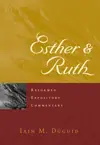

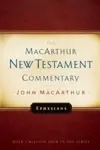

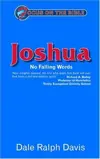

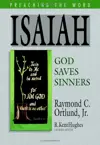

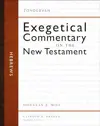



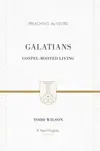



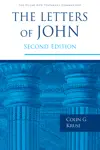

Reviews
Arnold, Clinton E. ed. 1 and 2 Thessalonians. ZECNT. Zondervan, 2012.
This commentary is accessible, and helpful, in my opinion especially concerning the application sections.
1–2 Thessalonians. BECNT. Baker Academic, 2014.
Weima's commentary is very in-depth and is a helpful companion to the study of 1-2 Thessalonians. You should definitely consult this commentary.
Mark. ZECNT. Zondervan, 2014.
This commentary by Mark Strauss is a great tool for studying the Gospel of Mark. It is very clearly laid out and Strauss is able to present matters in a way that is highly comprehensible, combined with a sane judgement.
You can rely on him to address all relevant issues. It is not a "spectacular" commentary, but it is consistently very helpful in the areas of context, structure, translation, exegesis and often also application. If you're working through the Gospel of Mark, make sure to have this tool close at hand!
The Gospel according to Mark. PNTC. Eerdmans, 2001.
This is a very helpful commentary. Edwards sometimes draws your attention to things that might go unnoticed even in other commentaries. As already noted by others, he emphasizes the theological significance of the text, and often helpful so. He seems to have an excellent command of the literature on the Gospel of Mark (at least from the point of view of his publication date), which often adds a helpful dimension and perspective, but sometimes seems distracting or unnecessary. Overall, it wasn't an equally rewarding read for every pericope, but sometimes it really is precious.
Let's Study Philippians. LSS. Banner of Truth, 1998.
Sinclair Ferguson is a very helpful expositor, always with an eye to practical application and clear language. In most cases, reading this commentary will give you an insight into the passage in question, despite its brevity.
The Letter to the Philippians. PNTC. Eerdmans, 2009.
This commentary by Walter Hansen is a valuable resource. His work is more extensiv than Moisés Silvas BECNT commentary, so you find information on most of the questions that arise from the text. Hansen – for my estimation – to often discusses the opinion of other scholars which made the reading not always equally fruitful. Nevertheless, I was able to get much help from this commentary and I recommend using it.
Philippians. REC. P&R Publishing, 2013.
This expository commentary by Dennis Johnson is a great help in understanding and applying the book of Philippians. I warmly recommend it.
Philippians (2nd ed.). BECNT. Baker Academic, 2005.
While working through Philippians, this commentary by Moisés Silva proved to be a very helpful resource. It is refreshingly succinct, so he doesn't get lost in secondary sources or prolonged discussions on the opinions of other commentators.
Silva tries to get to the heart and intent of each pericope as quick as possible which is very helpful. This also means that he does not always comment on every single word, even though he includes a wealth of additional notes after each pericope which often discuss deeper lexical questions. It is welcomed that these discussions are kept out of the main commentary.
Everyone who wants to study Philippians should have this commentary, but I recommend to supplement it with an additional resource that gives some more detailed discussion on each individual verse.
Genesis: Beginning and Blessing. PtW. Crossway, 2004.
I worked through Genesis while using this commentary in parallel and benefitted much from it. It is apparent that Kent Hughes did much exegetical background work and has considered many different commentaries and scholars to lay a solid groundwork for his own exposition. Since this is a preaching commentary, he (in most cases) „only“ brings his results to display. This is not meant as a downside, since you never have the feeling, that he passes over something that would have been important for the general reader and also gives reference to further study material in his footnotes.
For more detailed lexical discussion or comparison of different exegetical options, one can consult a more detailed and technical work (I myself used Kenneth Mathews 2-volume NAC commentary).
The chapters often contain precious observations, helpful quotes and in most cases Hughes gets to issues of practical Christian living. Only few chapters seemed to be a little lengthy, where it felt to be just a kind of retelling the story. Overall then, this commentary is accessible to every Christian and helps to get a solid grasp of Genesis – both in theological aspects (redemptive history), as well as for the implications and requirements for practical living.
A minor downside to the complete Preaching the Word series is, that you always have to flip back and forth if you want to consult the footnotes. But that's something you can cope with.
1 & 2 Peter and Jude: Sharing Christ's Sufferings. PtW. Crossway, 2008.
This commentary really helps to capture the flow of thought in the first letter of Peter!
